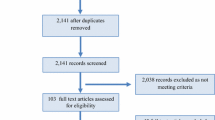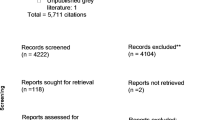Abstract
Event managers are attempting to reduce their environmental impact but have difficulty in managing stakeholders’ behaviors. Yet, event managers have no guidelines to properly engage stakeholders to improve attitudes towards sustainability or evaluate the effectiveness of current communication strategies to convey the parent organization’s prioritization of sustainability initiatives. This research extends and evaluates the fit for the entire Sport Sustainability Campaign Evaluation Model (SSCEM) longitudinally using a sport event’s (the Games’) comprehensive environmental sustainability initiative across multiple campaigns (waste diversion, transportation, energy conservation, and water conservation). Data was gathered (both pre- and post-Games) from caregivers (N = 182) of intellectually disabled athletes who attended the Games. The structural model fit adequately well (RMSEA = 0.072; χ2/df = 1.64). Our results demonstrate the necessary elements to successfully design such messaging campaigns to engage and promote sustainable behaviors at events and how such campaigns can influence sustainability and advocacy behaviors beyond the event in local communities.


Similar content being viewed by others
References
Ajzen I (1991) The theory of planned behavior. Organ Behav Hum Decis Process 50:179–211
Ajzen I, Fishbein M (1980) Understanding attitudes and predicting social behavior. Prentice-Hall, Englewood Cliffs
Ajzen I, Madden TJ (1986) Prediction of goal-directed behavior: Attitudes, intentions, and perceived behavioral control. J Exp Soc Psychol 22:453–474
Al Salami MK, Makela CJ, de Miranda MA (2017) Assessing changes in teachers’ attitudes toward interdisciplinary STEM teaching. Int J Technol Des Educ 27(1):63–88
Ballew MT, Rosenthal SA, Goldberg MH, Gustafson A, Kotcher JE, Maibach EW, Leiserowitz A (2020) Beliefs about others’ global warming beliefs: The role of party affiliation and opinion deviance. J Environ Psychol 70:101466
Ballouli K, Trail GT, Koesters TC, Bernthal MJ (2016) Differential effects of motives and points of attachment on conative loyalty of formula 1 US grand prix attendees. Sport Mark Q 25(3):166–181
Bandura A (2008) Reconstrual of “free will” from the agentic perspective of social cognitive theory. In: Baer J, Kaufman JC, Baumeister RF (Eds.), Are We Free? (pp. 86–127). Oxford University Press. https://doi.org/10.1093/acprof:oso/9780195189636.003.0006
Baron RM, Kenny DA (1986) The moderator–mediator variable distinction in social psychological research: conceptual, strategic, and statistical considerations. J Pers Soc Psychol 51(6):1173
Belz FM, Peattie K (2012) Sustainability marketing, 2nd edn. John Wiley & Sons Ltd., West Sussex
Browne MW, Cudeck R (1992) Alternative ways of assessing model fit. Sociol Methods Res 21(2):230–258
Casper JM, Pfahl ME, McCullough BP (2014) Intercollegiate sport and the environment: Examining fan engagement based on athletics department sustainability efforts. J Issues Intercolleg Athlet 7:65–91
Casper J, Pfahl M, McCullough BP (2017) Is going green worth it? Assessing fan engagement and perceptions of athletic department environmental efforts. J Appl Sport Manag 9(1): 106–134. https://doi.org/10.18666/JASM-2017-V9-I1-7690
Casper J, McCullough BP, Pfahl ME (2020) Examining environmental fan engagement initiatives through values and norms with intercollegiate sport fans. Sport Manag Rev 23(2):348–360. https://doi.org/10.1016/j.smr.2019.03.005
Crawford DW, Godbey G (1987) Reconceptualizing barriers to family leisure. Leis Sci 9:119–127
Dean M, Raats MM, Shepherd R (2012) The role of self-identity, past behavior, and their interaction in predicting intention to purchase fresh and processed organic food. J Appl Soc Psychol 42(3):669–688
Deci EL, Ryan RM (2008) Self-determination theory: A macrotheory of human motivation, development, and health. Can Psychol 49(3):182–185
Dolf M, Teehan P (2015) Reducing the carbon footprint of spectator and team travel at the University of British Columbia’s varsity sports events. Sport Manag Rev 18(2):244–255
Eagly AH, Chaiken S (1993) The psychology of attitudes. Harcourt Brace Jovanovich, Fort Worth
Gordon LV (1975) The measurement of interpersonal values. Science Research Associates Inc, Chicago
Harrolle M, Trail G, Rodriguez A, Jordan J (2010) Conative loyalty of Latino and non-Latino professional baseball fans. J Sport Manag 24(4):456–471
IPCC (2018) Global warming of 1.5°C. An IPCC Special Report on the impacts of global warming of 1.5°C above pre-industrial levels and related global greenhouse gas emission pathways, in the context of strengthening the global response to the threat of climate change, sustainable development, and efforts to eradicate poverty. Retrieved from https://www.ipcc.ch/sr15/.
Kim YK, Trail G (2010) Constraints and motivators: a new model to explain sport consumer behavior. J Sport Manag 24(2):190–210
Lauren N, Smith LD, Louis WR, Dean AJ (2019) Promoting spillover: how past behaviors increase environmental intentions by cueing self-perceptions. Environ Behav 51(3):235–258
MacCallum RC, Browne MW, Sugawara HM (1996) Power analysis and determination of sample size for covariance structure modeling. Psychol Methods 1(2):130–149
Maslow AH (1943) A theory of human motivation. Psychol Rev 50:370–396
McCullough BP (2013) Identifying the influences on sport spectator recycling behaviours using the theory of planned behaviour. Int J Sport Manag Market. https://doi.org/10.1504/IJSMM.2013.060631
McCullough BP, Cunningham GB (2011) Recycling intentions among youth baseball spectators. Int J Sport Manag Mark 10(1/2):104–120. https://doi.org/10.1504/IJSMM.2011.043618
McCullough BP, Pfahl M, Nguyen S (2016) The green waves of environmental sustainability in sport. Sport in Society 19(7):1040–1065. https://doi.org/10.1080/17430437.2015.1096251
McCullough BP, Orr M, Watanabe NM (2020) Measuring externalities: The imperative next step to sustainability assessment in sport. J Sport Manag 34(5):393–402. https://doi.org/10.1123/jsm.2019-0254
Moisander J (2007) Motivational complexity of green consumerism. Int J Consum Stud 31(4):404–409
Nolan JM (2010) “An Inconvenient Truth” increases knowledge, concern, and willingness to reduce greenhouse gases. Environ Behav 42(5):643–658
O’Fallon C, Sullivan C, Hensher DA (2004) Constraints affecting mode choices by morning car commuters. Transp Policy 11(1):17–29
Pelcher JA, McCullough BP, Trendafilova SA (2021) Collegiate athletics environmental sustainability efforts within STARS reporting. Int J Sustain High Educ 22(2):328–343 .https://doi.org/10.1108/IJSHE-07-2020-0246
Pfahl M (2013) The environmental awakening in sport. The Solutions Journal 4(3):67–76
Robinson M, Trail GT (2005) Relationships among spectator gender, motives, points of attachment, and sport preference. J Sport Manag 19:58–80
Rokeach M (1973) The nature of human values. Free Press, New York
Rokeach M, Ball-Rokeach SJ (1989) Stability and change in American value priorities, 1968–1981. Am Psychol 44(5):775–784
Schwartz SH (1992) Universals in the content and structure of values: Theoretical advances and empirical tests in 20 countries. Adv Exp Soc Psychol 25:1–65
Schwartz SH (2012) An overview of the schwartz theory of basic values. Online Read Psychol Cult. https://doi.org/10.9707/2307-0919.1116
Stern PC, Dietz T, Abel TD, Guagnano GA, Kalof L (1999) A value-belief-norm theory of support for social movements: The case of environmentalism. Hum Ecol Rev 6:81–97
Stryker S, Burke PJ (2000) The past, present, and future of an identity theory. Social Psychol Quarterly 63:284–297
Trail GT (2015) Marketing sustainability through sport organizations. In: McCullough BP (ed) Introduction to environmental sport management. Forwarding Sport Sustainability LLC, Seattle, pp 81–101
Trail GT (2016) Marketing Sustainability through Sport. Sport Consumer Research Consultants LLC, Seattle
Trail GT (2019) Sport consumer behavior (4th ed.), Seattle, WA: Sport Consumer Research Consultants LLC
Trail GT, McCullough BP (2018) Differential effects of internal and external constraints on sustainability intentions: A hierarchical regression analysis by market segment of running event participants. J Manag Global Sustain 6(2): 1–36. https://doi.org/10.13185/JM2018.06206
Trail GT, McCullough BP (2020) Marketing sustainability through sport: Testing the sport participant sustainability behavior model. Eur Sport Manag Q 20(2):109–129. https://doi.org/10.1080/16184742.2019.1580301
Trail GT, Robinson M, Dick R, Gillentine A (2003) Motives and points of attachment: Fans versus spectators in intercollegiate athletics. Sport Mark Q 12:217–227
Trail GT, Anderson DF, Fink JS (2005) Consumer satisfaction and identity theory: A model of sport spectator conative loyalty. Sport Mark Q 14:98–112
Triantafyllidis S, Darvin L (2020 – in press). Mass-participant sport events and sustainable development: Gender, social bonding and connectedness to nature as predictors of socially and environmentally responsible behavioral intentions. Sustainab Sci
United Nations (2010) United Nations environmental programme: Sport and environment. Retrieved from http://www.unep.org/sport_env/
United Nations (2019) Sports for Climate Action. Retrieved from https://unfccc.int/climate-action/sectoral-engagement/sports-for-climate-action
Westbrook RA, Oliver RL (1981) Developing better measures of consumer satisfaction: some preliminary results. ACR North American Advances 9:94–99
Woo B, Trail GT, Kwon HH, Anderson D (2009) Testing models of motives and points of attachment among spectators in college football. Sport Mark Q 18(1):38–53
Yoshida M, Heere B, Gordon B (2015) Predicting behavioral loyalty through community: Why other fans are more important than our own intentions, our satisfaction, and the team itself. J Sport Manag 29(3):318–333
Author information
Authors and Affiliations
Corresponding author
Additional information
Publisher's Note
Springer Nature remains neutral with regard to jurisdictional claims in published maps and institutional affiliations.
Handled by Annamaria Di Fabio, Universita degli Studi di Firenze Dipartimento di Scienze della Formazione e Psicologia (sezione di Psicologia), Italy.
Rights and permissions
About this article
Cite this article
Trail, G.T., McCullough, B.P. A longitudinal study of sustainability attitudes, intentions, and behaviors. Sustain Sci 16, 1503–1518 (2021). https://doi.org/10.1007/s11625-021-00954-7
Received:
Accepted:
Published:
Issue Date:
DOI: https://doi.org/10.1007/s11625-021-00954-7




